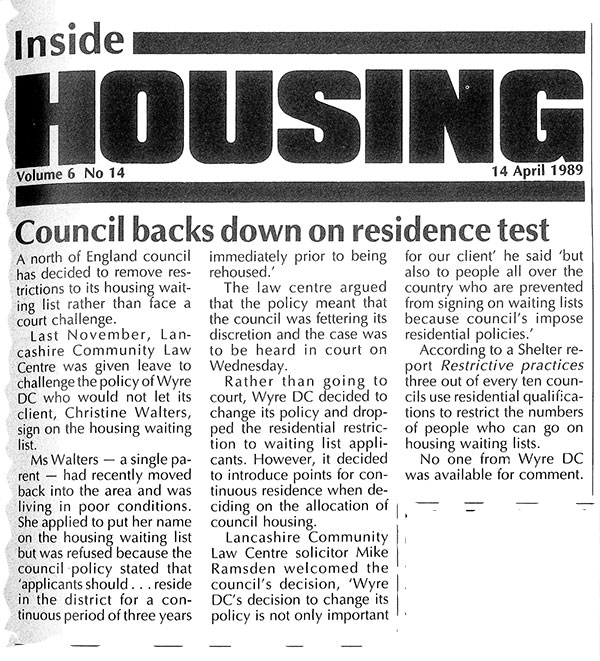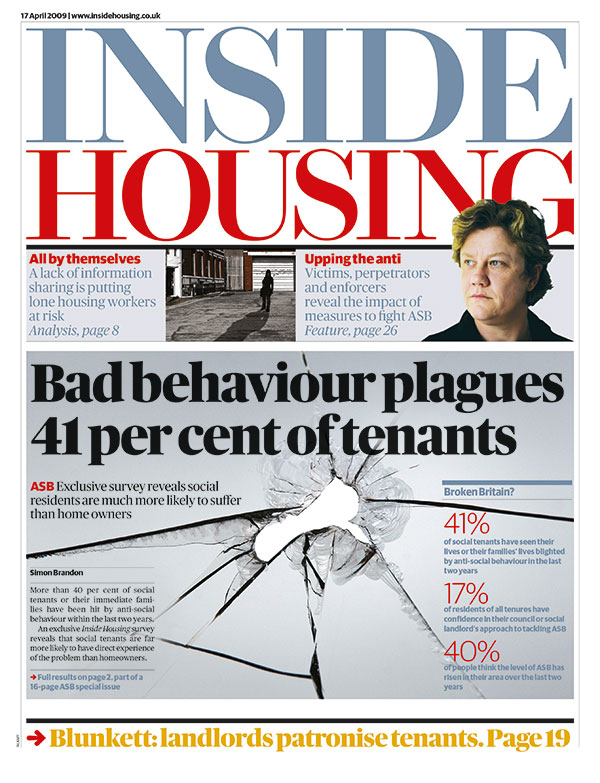You are viewing 1 of your 1 free articles
From the archive – more than 40% of social tenants affected by anti-social behaviour
Inside Housing looks back at what was happening in the sector this week 10, 20 and 30 years ago
30 years ago
A council in the North of England decided to remove restrictions to its housing waiting list rather than face an impending legal battle.
The previous November, Wyre District Council in Lancashire was challenged by the Lancashire Community Law Centre after the council did not let a single parent sign on to its housing waiting list.
Christine Walters had moved back to the area and was living in poor conditions. But she was refused a place on the waiting list because of a policy that stated “applicants should… reside in the district for a continuous period of three years immediately prior to being rehoused”.
After the case was allowed to be heard, Wyre District Council dropped the restriction rather than going to court. Instead, it introduced points for continuous residence when deciding on allocations.
20 years ago
Paddington Churches Housing Association – now part of Notting Hill Genesis – clashed with its tenants over its handling of the abrupt departure of chief executive Dr Alun Jones earlier that month.
Tenants’ federation chair Tim Baster said that the departure of Dr Jones had been a shock and described the association’s handling of his resignation as “incredibly secretive”.
Mr Baster pointed out that the association’s annual report revealed a £90,000 salary for its highest-paid employee, and asked: “What sort of golden handshake has been paid for out of tenants’ rent? We certainly haven’t been informed.
“It’s not good enough to tell us he left because of ‘strategic differences’. They have a duty to be more open with tenants.”
The Housing Corporation, meanwhile, had voiced unhappiness over the procedure used to appoint Dr Jones’ successor, Anu Vedi.
Tenants were furious that Mr Vedi had been promoted without the job being advertised externally.
A corporation spokesperson said: “We do not believe that this constitutes good governance.”
10 years ago
An exclusive Inside Housing survey found that more than 40% of social tenants or their immediate families had been affected by anti-social behaviour in the previous two years.
The poll revealed that social tenants were far more likely to have direct experience of anti-social behaviour than homeowners.
Overall, just under a third (32%) of people surveyed felt that they or their family had been affected by anti-social behaviour. Just 17% said they had confidence in their council or social landlord to tackle the problem.
Michael Gelling, chair of the Tenants’ and Residents’ Organisations of England, said the results suggested that closer work between landlords and other agencies, such as the police and probation services, was vital.


